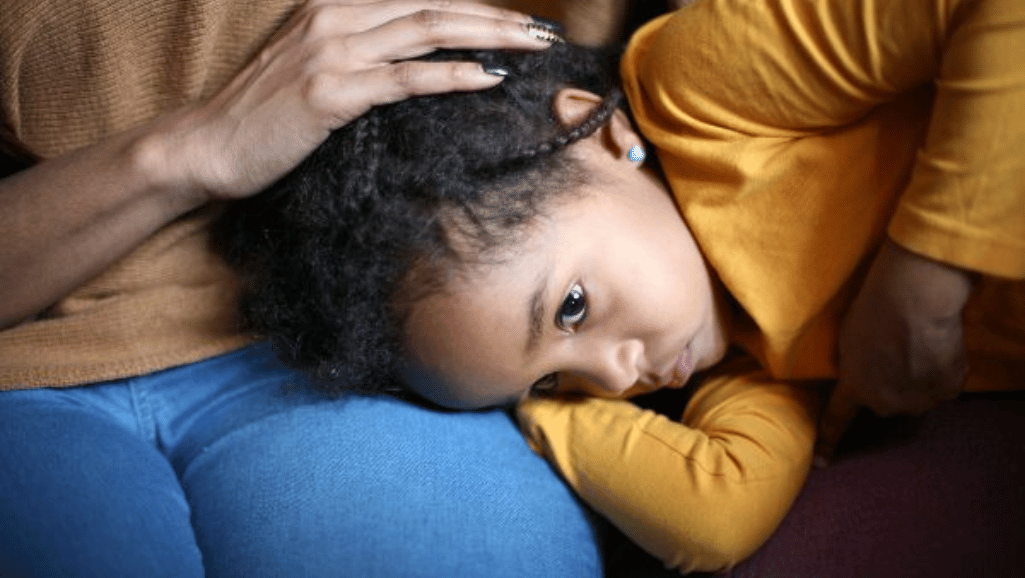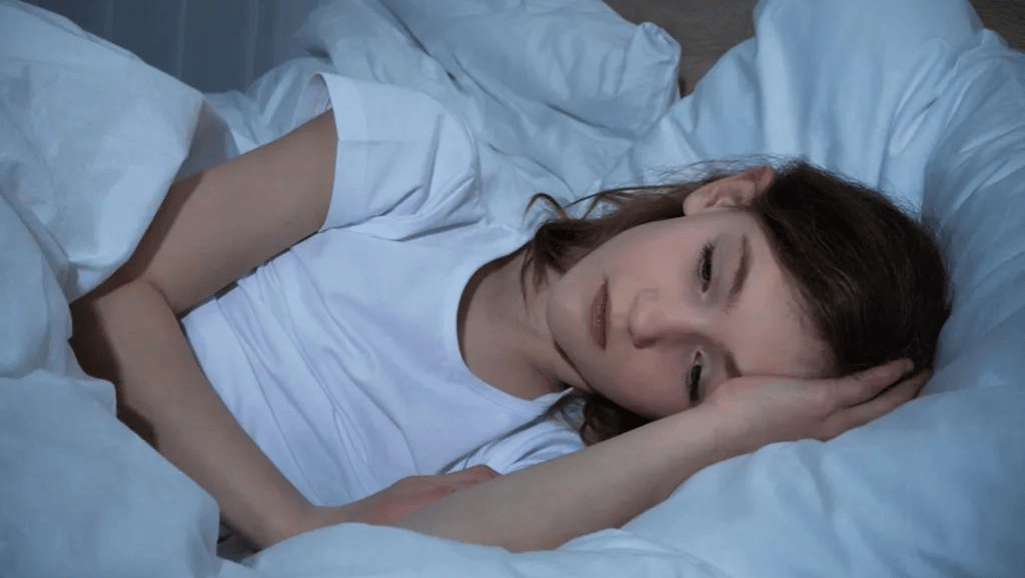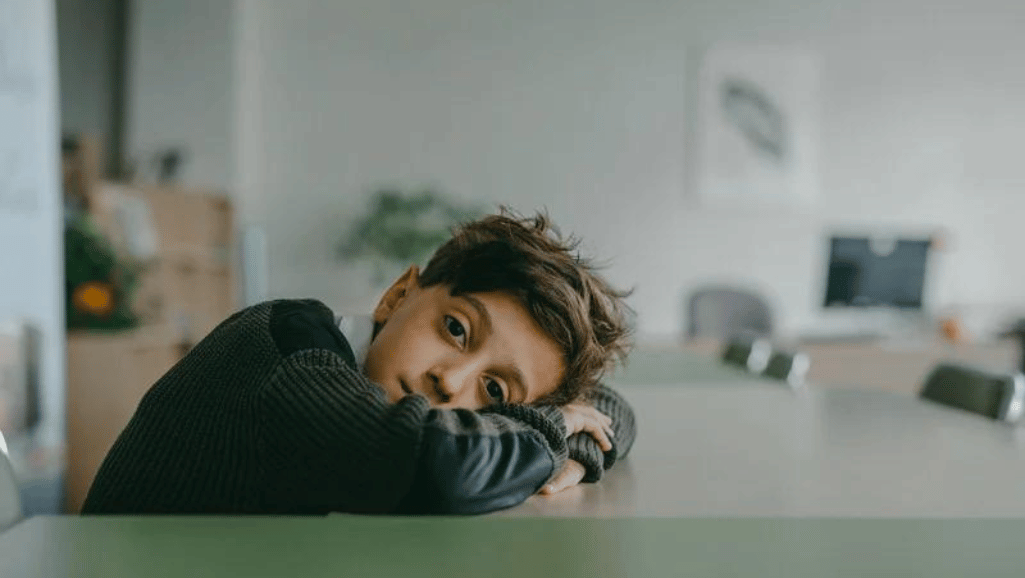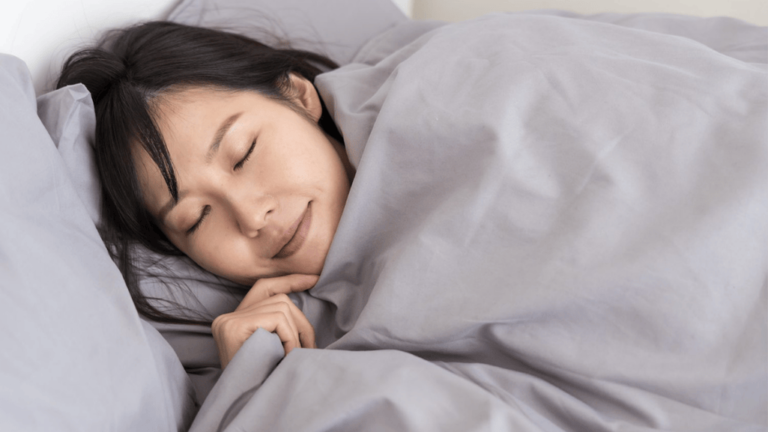Sleep is key for a child’s growth and development. Many families face child insomnia, a common issue that impacts a kid’s health. This guide looks at child insomnia natural remedies and ways to help kids sleep better without medicine.
Kids need different sleep amounts at various ages. Babies need 12-16 hours, while teens require 8-10 hours. Not getting enough sleep can cause focus problems and mood swings. But, good sleep helps with growth, boosts immunity, and makes the brain work better.
Things like irregular schedules, anxiety, or too much screen time can mess with a child’s sleep. By knowing these factors, parents can find ways to help their kids sleep better and improve their sleep quality.
Key Takeaways
- Child insomnia affects growth and development
- Sleep needs vary by age, from 16 hours for babies to 8 hours for teens
- Good sleep boosts immunity and enhances brain function
- Irregular schedules and anxiety can disrupt sleep
- Natural remedies can improve sleep quality effectively
- Consistent routines help children fall asleep easier
- Screen time should be limited before bedtime
Understanding Child Insomnia and Its Impact
Child insomnia is a common issue that many families face. It can deeply affect a child’s physical and mental growth. It’s important for parents to understand the causes and effects of poor sleep in kids to find solutions.
Defining Child Insomnia
Child insomnia means having trouble falling asleep or staying asleep. This sleep disorder affects about 20% to 30% of kids. It messes with their sleep patterns and overall health.
Effects on Physical and Mental Development
Poor sleep in children can hurt their growth and development in many ways:
- Impaired cognitive function and learning abilities
- Mood swings and behavioral issues
- Weakened immune system
- Increased risk of obesity and other health problems
Common Causes of Sleep Issues in Children
Many things can lead to sleep problems in kids:
| Cause | Description |
|---|---|
| Circadian rhythm disruptions | Irregular sleep schedules or too much screen time |
| Anxiety or stress | School stress, family changes, or social worries |
| Medical conditions | Sleep apnea, allergies, or ongoing pain |
| Environmental factors | A noisy or uncomfortable place to sleep |
Fixing these issues is key to helping kids with insomnia and encouraging healthy sleep habits.
Establishing a Consistent Bedtime Routine
Creating a bedtime routine for kids is key for good sleep habits. A consistent sleep schedule helps set their internal clock. This makes it easier for them to sleep well and wake up on time.
Most kids sleep well within 20 minutes of bedtime with a regular routine. To make a bedtime routine work, follow these steps:
- Set consistent bedtimes and wake-up times within 1-2 hours of each other daily
- Create a calm environment by dimming lights and reducing noise
- Engage in relaxing activities like reading stories or gentle music
- Avoid bright lights and electronic devices at least one hour before bedtime
- Ensure the bedroom is cool, quiet, and dark
These practices can greatly improve sleep quality for kids. If sleep issues last more than 2-4 weeks, see a healthcare professional.
| Age Group | Recommended Sleep Duration | Typical Nap Habits |
|---|---|---|
| Toddlers (1-2 years) | 11-14 hours | 1-2 naps daily |
| Preschoolers (3-5 years) | 10-13 hours | May stop napping |
| School-age (6-12 years) | 9-12 hours | No naps needed |
| Teenagers (13-18 years) | 8-10 hours | No naps needed |
Consistency is crucial for bedtime routines in kids. Keeping up with these habits helps kids develop healthy sleep patterns. These patterns will help them for the rest of their lives.
Child Insomnia Natural Remedies: Effective Solutions for Parents
Parents dealing with child insomnia can find relief with natural remedies. These gentle solutions help your child sleep better without the risks of medicine. Let’s look at some effective ways to help your child rest well.
Herbal Teas and Warm Beverages
Herbal teas can soothe your child before bed. Chamomile tea is known for its calming effects. Warm milk with honey is also a comforting drink that might make your child sleepy.
Essential Oils and Aromatherapy
Aromatherapy is a natural way to help children sleep. Using lavender oil in baths or diffusers creates a calm setting. Its scent can gently guide your child to sleep.
Relaxation Techniques and Mindfulness Exercises
Teaching your child to relax can really help. Deep breathing and guided imagery calm anxious minds. These methods prepare your child for sleep by reducing stress and promoting calmness.
Dietary Considerations for Better Sleep
What your child eats affects their sleep. Stay away from caffeine and sugar before bedtime. Choose foods high in melatonin and magnesium instead. These nutrients help the body’s natural sleep cycle.
| Natural Sleep Aid | Benefits | Recommended Use |
|---|---|---|
| Chamomile Tea | Calming, promotes relaxation | 1 cup before bedtime |
| Lavender Oil | Reduces anxiety, improves sleep quality | 2-3 drops in bath or diffuser |
| Deep Breathing | Lowers stress, prepares for sleep | 5-10 minutes before bed |
| Magnesium-Rich Foods | Supports natural sleep cycle | Include in evening meals |
Remember, being consistent is important when using these natural remedies. Stick to a regular bedtime routine that includes these techniques for the best results in fighting child insomnia.
Creating an Optimal Sleep Environment
Creating a great sleep space is key for kids to sleep well. A well-designed bedroom can greatly improve your child’s sleep. Let’s look at what makes a perfect sleep area.
Temperature and Lighting Adjustments
The ideal room temperature is about 65 degrees Fahrenheit for good sleep. This cool temperature helps kids sleep better. Also, the right lighting is important.
Dimming the lights before bed helps increase melatonin, the sleep hormone. Keeping the room dark during sleep hours keeps sleep cycles healthy.
Noise Control and White Noise Machines
Even slight noises can wake kids up. White noise machines are great for blocking out sounds. They create a steady sound that helps kids fall asleep and stay asleep.
Fans can also make white noise, improving sleep quality. These devices and fans are simple ways to make sleep better.
Comfortable Bedding and Sleep Accessories
Comfortable bedding is crucial for kids to sleep well. Choose fabrics that breathe well, especially if your child sweats at night. A good mattress lasts about 9 to 10 years, offering steady comfort.
Adding sleep accessories like body pillows or weighted blankets can also help relax kids.
| Sleep Environment Factor | Recommended Setting | Benefits |
|---|---|---|
| Room Temperature | 65°F (18°C) | Promotes deeper sleep |
| Lighting | Dim before bed, dark during sleep | Supports natural melatonin production |
| Noise Level | Use white noise machines or fans | Masks disruptive sounds |
| Bedding | Breathable fabrics, quality mattress | Enhances comfort and reduces night sweats |
By focusing on these key elements, parents can make a sleep-friendly space for their kids. Using these strategies consistently can greatly improve sleep quality and length.
Lifestyle Changes to Promote Better Sleep in Children
Making simple changes can really help your child sleep better. It’s important for kids to be active during the day. But, they should not do hard exercises right before bed. This helps them get tired naturally and sleep better.
It’s key to limit screen time. Less screen time before bed keeps melatonin levels right, helping with sleep. Make a rule of no screens for an hour before sleep.
Helping kids manage stress is crucial for better sleep. Talking about their worries can lower stress hormones. Adding relaxing activities like deep breathing or stretching before bed can also help.
| Lifestyle Change | Benefits | Implementation Tips |
|---|---|---|
| Physical Activity | Natural tiredness, improved sleep quality | 30-60 minutes of daily exercise, avoid before bedtime |
| Screen Time Limits | Better melatonin production, easier sleep onset | No screens 1-2 hours before bed, use blue light filters |
| Stress Management | Reduced anxiety, improved relaxation | Regular check-ins, bedtime storytelling, gentle yoga |
Encouraging kids to be outside and get natural light helps their sleep. This light helps their body clock work right. It makes them feel sleepy at night and wake up fresh in the morning.
Conclusion: Implementing Natural Sleep Solutions for Your Child
Using holistic methods can greatly improve your child’s sleep. Natural sleep solutions for kids are gentle yet effective. They help tackle bedtime issues in a caring way.
To improve sleep, be patient and consistent. Start a calming bedtime routine and try relaxation techniques. Also, consider using natural remedies like chamomile tea or essential oils. Remember, what helps one child might not help another, so be flexible with your approach.
Adults need about seven hours of good sleep, and kids often need more. If your child still has sleep problems after trying these methods, see a healthcare provider. With the right mix of natural solutions and expert advice, you can help your child develop good sleep habits. These habits will help them for many years.












